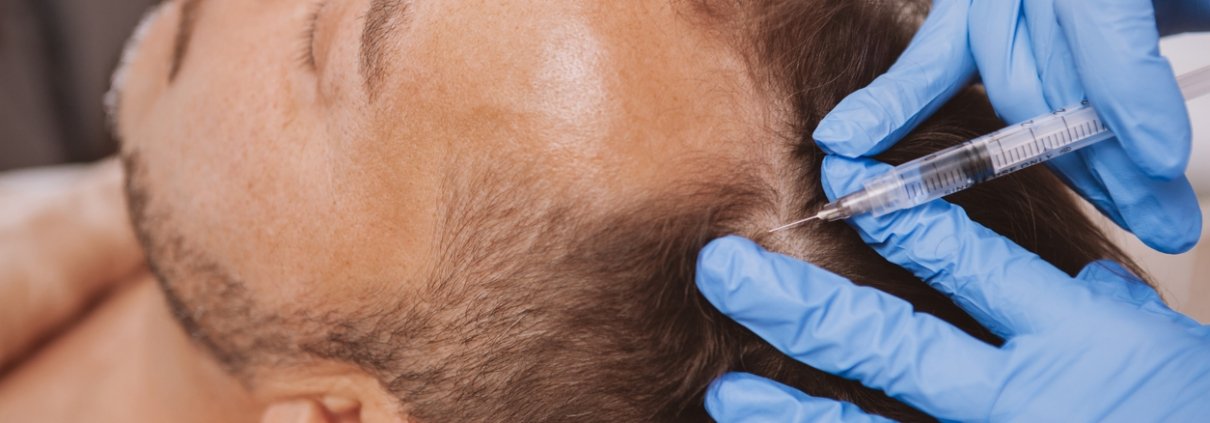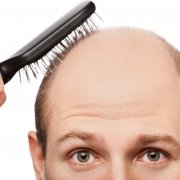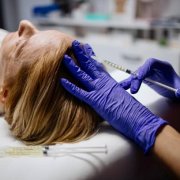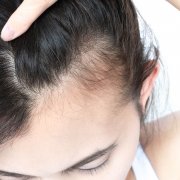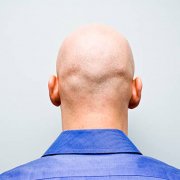Can Hair Loss Affect Young Adults?
Hair loss is a common condition with an estimated 48 million men and 32 million women in America alone experiencing it. Hair loss can be a distressing condition, and an increasing number of young adults are affected by it.
Hair on the scalp consists of about 100,000 to 150,000 follicles, which in comparison to the approximate 5 million follicles covering the rest of the body is a relatively small number. Each hair follicle goes through a natural renewal cycle, which includes a growth stage (anagen), a stage of active loss (catagen), and a rest stage (telogen). In a healthy scalp, most hair remains in the anagen phase for a period of 3 years, with the catagen phase lasting approximately 1 to 3 weeks. During this time, the hair separates from the dermal root while remaining in place only by a thin strand of connective tissue. The telogen phase comes next and lasts around 3 to 4 months as the basal attachment becomes more dissipated. This ultimately leads to the hair shaft falling out. Hair can begin to thin if the rate of hair loss exceeds that of hair growth.
Two-thirds of American men experience some degree of hair loss by age 35, and recent research suggests that the numbers of teenagers and young adults in their 20s experiencing hair loss is on the rise. Although it is not always clear what the exact cause of hair loss in young adults is, it’s been attributed to factors such as hormonal imbalances, thyroid disorders, unhealthy nutrition intake, vitamin deficiencies, certain medications, autoimmune diseases, harsh chemicals and hairstyles, and stress.
Common Causes of Hair Loss in Young Adults
Pattern Baldness
The most common cause of hair loss in people of all ages, including young adults, is androgenetic alopecia, also known as pattern baldness, which accounts for more than 95% of hair loss in both men and women. It is usually a hereditary condition that is characterized by a receding hairline and eventual hair loss from the front and crown of the scalp. It can begin to develop as early as during the teen years and generally worsens with age. A variety of genetic and environmental factors can play a role in causing this condition, and this type of hair loss is thought to be related to hormones called androgens.
Androgens are important for normal sexual development through puberty, and also have a number of other important functions, such as regulating hair growth and sex drive. Increased levels of androgens in the hair follicles can lead to a shorter hair growth cycle and lead to the growth of thinner, shorter strands of hair. Growth of new hair may also be delayed.
Stress
Stress is thought to be a major contributor to premature hair loss. Research has found that today’s young adults experience higher levels of stress than previous generations and are finding it harder to cope with stress successfully. Stress can interrupt the hair growth process by prematurely moving hairs out of the anagen phase and into the catagen phase.
Traumatic Hair Loss
Hair loss caused by trauma and illness is far less prevalent than pattern baldness, but is a valid cause for many. Hair loss can be the result of physical trauma, psychological illnesses, and cytostatic drugs or chemotherapy used in cancer treatment.
Hair Loss Treatment Options
Treatment for hair loss has come a long way in recent years, providing a variety of options that can be tailored to all situations and budgets. If you have concerns about hair loss, seek advice from a specialist who can evaluate your level of hair loss, and provide a diagnosis. If necessary, they can discuss appropriate treatment options with you to successfully treat your condition. There are a number of surgical and non-surgical hair restoration options available to promote hair growth and slow hair loss, including medical treatments, low level laser therapy (LLLT), platelet rich plasma (PRP) treatments, and hair transplant surgery.
Treatment For Hair Loss in Kansas City, West Des Moines & Liberty, MO
If you are concerned about your hair loss, talk to hair transplant surgeon Dr. Scott Darling at Darling Hair Restoration of Liberty. Dr. Darling is a leading hair restoration specialist who can evaluate and diagnose your condition and offers effective treatment solutions tailored to your needs and budget.
For more information or to book a consultation, call us today at (816) 792-3400 or use our convenient online appointment request form.

